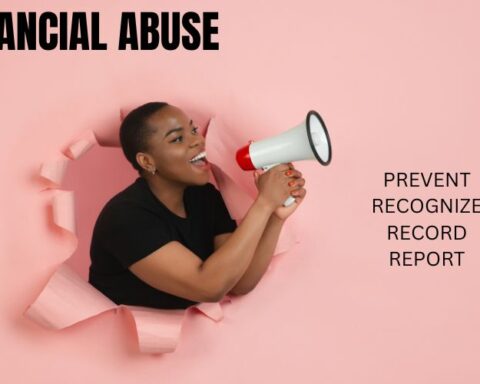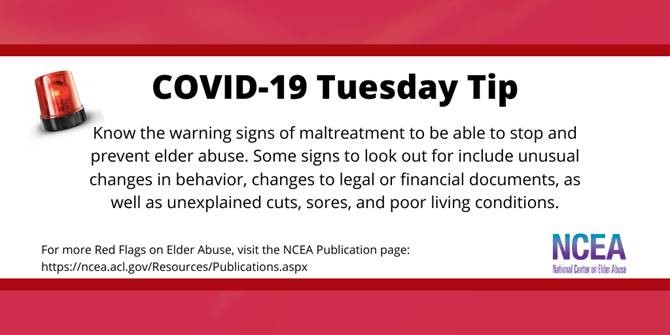Original Article | Concord Monitor By ALYSSA DANDREA
Another installment as part of our public awareness campaign provides resources to those at risk of financial exploitation.
The “grandchild in jail” scheme, “the pigeon drop” trick, the “gift-card scam” and the “fictitious love interest who suddenly falls on hard times and needs money wired overseas” – are just a few of the many fraud schemes on the rise in NH.
The tricks of the trade are all too common, and so are the first-hand accounts that cost victimized Americans billions of dollars annually. Older adults are disproportionately affected by financial scams, which often go unreported and prove difficult to prosecute.
Experts say financial exploitation is a growing threat not just nationally but in the Granite State, where demographic trends indicate that one in three residents will be over the age of 60 by 2030.
Launched in May, a statewide public awareness campaign aims to prevent financial exploitation and connect at-risk people with trusted resources. The New Hampshire Financial Abuse Specialist Team (FAST), which includes representatives from several state agencies, advocacy groups and financial institutions, is behind the “Stay Connected NH” initiative. Through a new website and media advertising, the campaign seeks to educate Granite Staters about traditional fraud schemes, in addition to theft by family members, friends and fiduciaries, and to serve as an information gateway for those who need help.
Effectively responding to cases of financial exploitation is often fraught with challenges, especially because victims are commonly reluctant to report. Some are embarrassed; others fear they may not be believed.
The problem is further compounded by a once-unforeseen global health pandemic. An already vulnerable segment of the population is now at even greater risk of financial exploitation, as many older adults self-isolate or drastically limit their in-person contact in hopes of not contracting the sometimes fatal virus.
“COVID creates an environment that is ripe for the picking,” said Sunny Mulligan Shea, a victim-witness advocate at the New Hampshire Attorney General’s Office. “Every week we see reports of someone who has been scammed. Now, there are new opportunities for scammers to exploit vulnerable adults, like by trying to sell them a cleaning product that will purportedly save them from the virus.”
Trying to avoid infection and complications from the virus can be taxing on a pers on’s mental and emotional well-being. As older adults are forced to spend more time alone they are naturally craving a human connection. While romance scams have long been a concern, attorneys and advocates say they are increasingly worried that there could be an uptick in abuse as more people turn to dating websites and social media to meet people during the pandemic.
A scammer’s playbook
Scammers who pose online as legitimate romantic partners are expert manipulators and can quickly wreak havoc. They are skilled at gaining a victims trust through fraudulent representations of themselves, paving the way for financial and emotional ruin.
A 70-year-old retired healthcare provider who resided for many years in Rockingham County knows the scammers’ playbook all too well.
“Their strategy, which I didn’t realize at the time, is to alienate you from your family and friends,” said the victim, who asked to be identified only by her initials J.A. due to safety concerns. “I was in a trance almost. He showed every notion of really caring for me, and there wasn’t anything that gave me the impression that this was a scam or wasn’t real. Now, I know I was mentally kidnaped.”
J.A. joined in late 2018 the social networking site MeetUp, which allows people to network and join groups based on personal interests. An avid runner, she became part of a hiking group and began conversing with likeminded strangers. For more than a decade, she had cared for her ailing husband, who lost his battle with Parkinson’s disease in March of 2018, and she was ready to begin anew again and challenge herself socially.
One man reached out to her early on, and he hit her with a lot of questions.
“Very skillfully, they wiggle their way into your life,” J.A. said. “This man, I told him about my husband, and he told me about his wife who he had taken care of and who died of cancer. He shared pictures of himself, of him and his child, of him playing baseball. He constantly barraged me with text messages and these personal stories that really hit home.”
J.A. and the man were supposed to meet in person but then he said he had to go to England unexpectedly for work. Two weeks into their relationship, he told her something had happened in England; he was in trouble and needed money.
“That’s when it all started,” she said. “I sent him money three or four times. What’s strange is I didn’t even care about the money because I was so entranced. I couldn’t think straight, and that wasn’t like me.”
She wired nearly $200,000 to the man before a concerned relative stepped in and made a report to the police. The man who had swept her off her feet was in fact a con artist, and he had stolen another man’s identity, including photos off social media.
Asking for help
Experts say cyberspace provides unique opportunities to meet people but it is also full of scammers eager to capitalize on lonely hearts for their own financial gain.
Assistant Attorney General Bryan Townsend II told the Monitor that scammers commonly target seniors who are widows, widowers and recently divorced because they’re particularly vulnerable to manipulation of the heart.
“It can start online or by telephone, and it often comes after someone loses a loved one who they were married to for 40 or 50 years,” said Townsend, who works in the Department of Justice’s Elder Abuse and Exploitation Unit. “They start talking to this person who they believe is legitimate and who tells this elaborate tale about working overseas, like on an oil rig, or whatever, and they work to get a lot of personal information. If the victim has three children, then the scammer has three children. The more they have in common the better.”
Townsend said once a deeper connection is established, that is when the demands for money start.
“Every type of person has fallen for these scams,” Townsend said. “People with high-level jobs, extensive education, and people who think it can’t happen to me, or that stuff only happens to people with dementia or other cognitive issues.”
Like most internet scams, including the sweetheart or romance scam, identifying the perpetrators is a difficult, and sometimes, impossible process. They are usually working from outside the United States, and may request money transfers through mules or other victims. The phone number they use may have been stolen or doesn’t trace back to the actual perpetrator.
“It’s so extremely difficult, especially for the state of New Hampshire, because there is only so much we can do here,” Townsend said. “The networks in these other countries are so sophisticated.”
When cases are reported, state authorities share the information with federal authorities, including the FBI, who may be able to find connections between multiple victims that lead them to the perpetrator.
Mulligan Shea, who worked J.A.’s case, said the sooner a victim can come forward to authorities, even if just to raise suspicion and seek out information, the better. But the reality is that scammers are very good at manipulating their victims. She said sweetheart scammers groom their victims like sexual predators and try to convince the victims that “they’re special and important in their lives.”
“Part of them wants to believe that it’s real, and so for some time they may hang on to that hope.”
Mulligan Shea
Cheryl Steinberg, senior law project director at New Hampshire Legal Assistance (NHLA), said victims should never feel ashamed to ask for help. Through the “Stay Connected NH” campaign, she hopes education and awareness will help shed that stigma.
Attorneys at NHLA, which is a member of the statewide Financial Abuse Specialty TEAM, are concerned about a potential increase in cases of elder financial exploitation due to the pandemic. She said when people are experiencing financial hardship, loneliness or isolation, the environment is “ripe for more scams.”
“We want people to understand that financial exploitation doesn’t just affect the victim or their family; it affects the community where those people live,” Steinberg said. “New Hampshire has one of the oldest populations in the country. This is our problem, and we should be concerned about what may be brewing.”
If you are in need of help, contact the adult protective services hotline 24/7 at 800-949-0470. “Stay Connected NH” has a list of resources on its website: https://stayconnectednh. org/resources/












